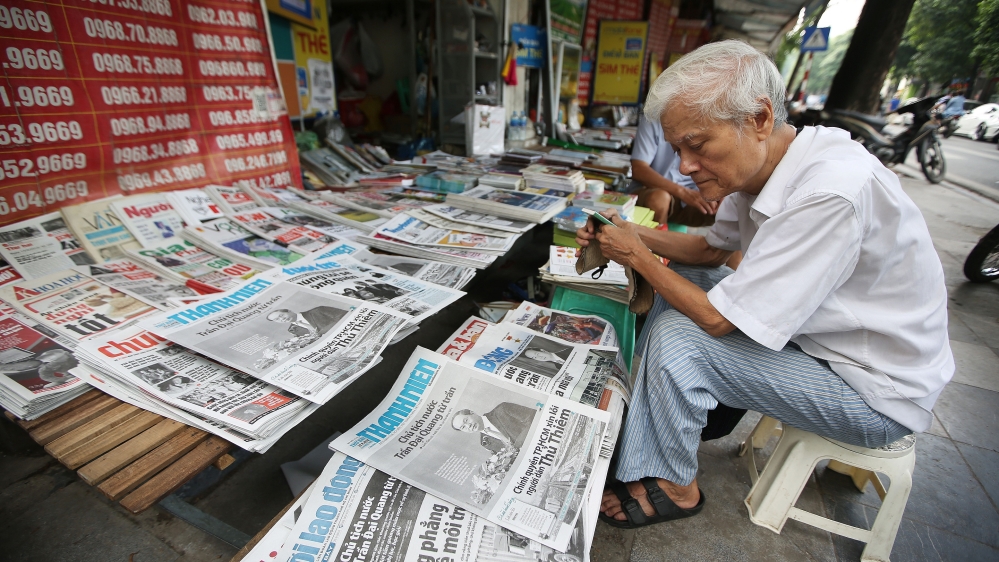The arrest of Pham Doan Trang- regarded as one of Vietnam’s prominent journalist and a critic of the authorities, is part of the government’s repressive tactics to silence dissidents. The one-party state is also preparing a cybersecurity law that will require internet companies like Facebook and Google to remove content deemed ‘anti-state’.
Excerpt:
Vietnamese authorities have arrested Pham Doan Trang – one of the nation’s most prominent independent journalists.
Trang was detained on Tuesday evening in Ho Chi Minh City, the same day Vietnam and the US held the 24th annual US-Vietnam human rights dialogue, which included talks on issues such as the right to freedom of expression.
Analysts say her arrest is part of a crackdown on activists ahead of Vietnam’s five-yearly national congress in January, while Facebook is facing criticism for growing increasingly complicit in suppressing freedom of speech.
Vietnamese authorities confirmed on Wednesday that they had charged Trang with “making, storing, distributing or disseminating information, documents and items” that aim to oppose the Vietnamese state. The harshest sentence for this crime is 20 years in jail.
Trang is the author of numerous books whose work covers everything from women’s rights and LGBT issues to environmental concerns, activism and land rights. In 2019, Reporters Without Borders awarded her a Press Freedom Prize in recognition of her impact.
Most recently, she spoke out online about a highly sensitive land rights clash in Dong Tam Village – related to the construction of a military airport on farmland claimed by villagers on the outskirts of Hanoi – in which one villager and three policemen lost their lives.
Phil Robertson at Human Rights Watch said: “Despite suffering years of systemic government harassment, including severe physical attacks, she has remained faithful to her principles of peaceful advocacy for human rights and democracy. Her thoughtful approach to reforms, and demands for people’s real participation in their governance, are messages the Vietnam government should listen to and respect, not repress.”
Ming Yu Hah at Amnesty International said: “This is an outrageous arrest. Pham Doan Trang is a leading figure in the struggle for human rights in Vietnam. She has inspired countless young activists to speak up for a more just, inclusive and free Vietnam.”
Hah told the Guardian Facebook’s decision to cave into Vietnamese authorities’ demands for censorship earlier this year makes them complicit in the country’s harsh repression of freedom of expression.
“We have documented a persistent rise in the censorship of legitimate commentary on social and political affairs on the platform since 2018, with a particularly sharp increase in 2020,” she added. “Merely sharing information about Vietnam’s many serious human rights problems, from land disputes to the death penalty, now regularly leads to arbitrary censorship on Facebook.”
In March this year, a Reuters report revealed how Facebook faced intense pressure from the Vietnamese government. State-run telecommunications companies took the social media site’s local servers offline, which slowed local traffic on the site to a crawl. Consequently, the company began allowing censorship in Vietnam of content deemed “anti-state”, including those by activists like Trang.
Vietnam is in the process of finalising guidelines for its highly controversial cybersecurity law, which requires internet companies like Facebook and Google to remove content deemed “anti-state” and says the US tech giants will have to set up local offices and servers in Vietnam if they wish to continue operating – a request the organisations have refused to carry out.
Download:
